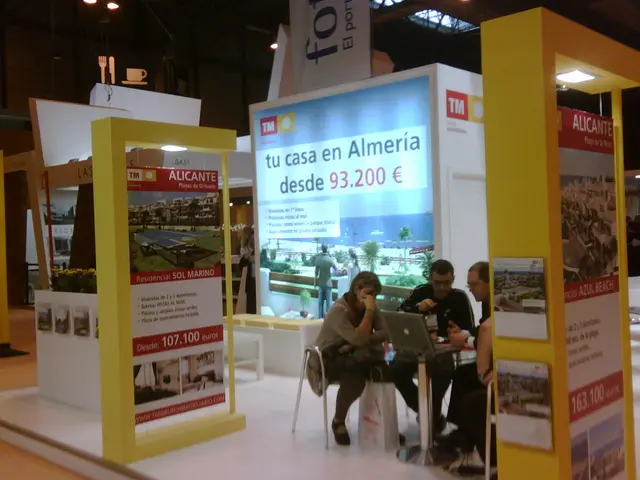Corporation Albaupstyg, along with its affiliates, faces potential threats
In a recent development, the federal state of North Rhine-Westphalia (NRW) has voiced its criticism towards the federal government's financing plans for highway widening and infrastructure projects. The concern lies in a potential funding gap of around 15 billion euros, which could pose a risk to numerous planned autobahn and federal road projects in NRW scheduled between 2026 and 2029.
The transport sector is facing budgetary constraints, with Transport Minister Patrick Schnieder (CDU) having 38.29 billion euros to manage, six billion euros less than in 2024. However, some relief comes in the form of the special fund "Infrastructure and Climate Neutrality" (SVIK), which is endowed with over 500 billion euros over around twelve years. For the 2025 transport budget, 11.71 billion euros from the SVIK are provided.
Several states have outlined their infrastructure projects. Thuringia plans to build a bypass for Greußen (B4), implement measures on B4 (Sundhäuser Berge, Andislebener Kreuz), and has projects on B7 (Frohburg, Zeitz). Brandenburg plans several bypasses, including Frankfurt/Oder. Hesse plans to expand the Wiesbaden interchange (210,000 vehicles daily), A44 between Kreuz Kassel-West and Dreieck Kassel-Süd (5.2 km, from four to six lanes), and new construction of A44 between Dreieck Lossetal and Helsa-Ost (11.3 km).
Other states, such as Saxony, plan to improve the B178 (Nostitz-A4) and B98 (Riesa-A13). Mecklenburg-Western Pomerania plans to build a bypass for Dargun (B110). Saxony-Anhalt is facing a maintenance deficit on 20,000 km of federal roads by 2029. The state also plans to build a bypass for Miesterhorst (B188, Altmark).
Hamburg does not receive funding for the expansion of A20, A26, and A39. The Greens in the Bundestag see a risk in the special fund "Infrastructure and Climate Neutrality" (SVIK). MP Paula Piechotta warned of the fund potentially crumbling under political interests. Baden-Württemberg plans to expand the A8 Alb ascent (Mühlhausen-Hohenstadt) to six lanes.
Rhineland-Palatinate plans to close the gap on the A1 between Adenau and Kelberg (25 km). Municipalities receive two billion euros for local transport infrastructure. For federal waterways, 1.99 billion euros are planned. However, funds for rail infrastructure decrease from 16.4 to 12.6 billion euros.
Schleswig-Holstein's Minister President Daniel Günther (CDU) and Transport Minister Claus Ruhe Madsen (CDU) have both expressed dissatisfaction with the cuts in the transport budget, calling them absolutely unacceptable. The coalition emphasized the importance of planning security, with CSU MP Florian Oßner stating that all transport providers are needed, and the time of playing them off against each other should be over. SPD MP Uwe Schmidt called for acceleration of procedures.
Simultaneously, the Bundestag passed the transport budget on September 16, 2025, and the equity capital of Deutsche Bahn AG was increased to 8.48 billion euros, supplemented by a three billion euro loan.
The Left also criticized the lack of a reliable basis for infrastructure financing. The Greens in the Bundestag, represented by MP Paula Piechotta, warned of the special fund "Infrastructure and Climate Neutrality" (SVIK) potentially crumbling under political interests.
This budget, while passed, has sparked significant debate among the states, political parties, and the public, as the country navigates its infrastructure needs and funding challenges.
Read also:
- chaos unveiled on Clowning Street: week 63's antics from 'Two-Tier Keir' and his chaotic Labour Circus
- Budget discrepancy jeopardizes highway projects' financial support
- Racing ahead in Renewable Energy Dominance: Changzhou, Jiangsu Pushes for Worldwide Renewable Energy Ascendancy
- Feeling disoriented or perplexed.







